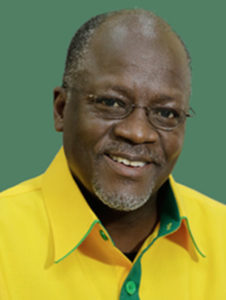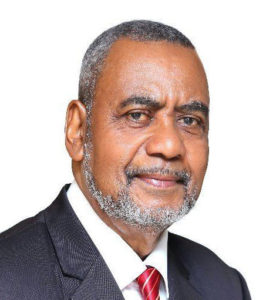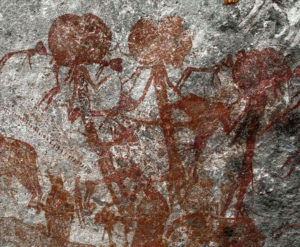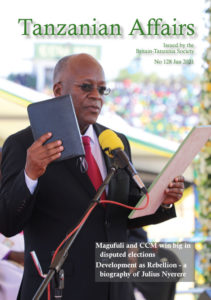by Ben Taylor

President John Pombe Magufuli
The fifth president of Tanzania,
President John Pombe Magufuli, died in March at the age of 61. Popular and controversial in equal measure, President Magufuli will be greatly missed by many in Tanzania, and long remembered by all.
An unexpected selection as the CCM presidential candidate in 2015, Magufuli emerged as a compromise choice when the party rejected more prominent figures including former Prime Minister, Edward Lowassa, and Foreign Affairs Minister, Bernard Membe. At the time, Magufuli was Minister of Works, responsible for road building, his second time in the role, where he had earned a reputation as a no-nonsense, hard-working operator: the “Bulldozer”.
The nickname sums up President Magufuli’s approach remarkably well, to the extent that both supporters and critics used it: the Bulldozer that sweeps obstacles out of the way as part of building something new and better, or the Bulldozer that charges around causing damage and destruction. There is truth in both perspectives.
Born in 1959 in Chato on the shores of Lake Victoria, John Pombe Magufuli grew up in a grass-thatched home, herding cattle and selling milk and fish to support his family. He attended Chato Primary School, Katoke Seminary in Biharamulo and Lake Secondary School in Mwanza, and then Mkwawa High School in Iringa for his A-levels, graduating in 1981. That same year he began a Diploma in Education Science, focussing on chemistry and mathematics, and he later earned a BSc in Education from the University of Dar es Salaam in 1988. After teaching secondary school chemistry and mathematics, he took a position as an industrial chemist in 1989. He later added a Masters and a PhD in chemistry from the University of Dar es Salaam in 1994 and 2009, respectively, including some time at the University of Salford, UK.
Magufuli switched to politics in 1995, when he was elected as MP for Chato and was immediately appointed by President Mkapa as Deputy Minister for Works, promoted to Minister for Works after the 2000 election. In 2010, President Kikwete moved Magufuli to head the Ministry of Lands and Human Settlement and later the Ministry of Livestock and Fisheries, before returning him to his former post as Minister of Works from 2010 to 2015.
As the CCM presidential candidate in 2015, Magufuli led a party that had been damaged by persistent corruption scandals under President Kikwete and weakened by the defection of Edward Lowassa and many of his supporters. He faced the challenge of doing so without a significant power-base of his own in the party. He ran a campaign under the slogan “Hapa Kazi Tu” (work and nothing else) and staked claim to the anti-corruption mantle, taking advantage of the main opposition parties’ decision to select Lowassa, a figure strongly associated in the public mind with corruption. A relatively narrow victory (with 58% of the vote) followed, and President Magufuli took office on November 5, 2015.
As President, Magufuli’s energetic early actions drew widespread acclaim. He cancelled Independence Day celebrations to save money and called on Tanzanians to spend the day on community cleaning work, cut the size of the cabinet, and swept through key institutions including port and tax authorities, firing anyone alleged to be associated with corruption or waste. The cost-cutting approach and hard-line response to corruption allegations were immensely popular within Tanzania and attracted attention further afield, inspiring the social media hashtag #WhatWouldMagufuliDo?
Even at this early stage, however, there were also signs of a different, problematic side to President Magufuli. He called on the country to stop its obsession with politics and focus on development instead. In practice, this meant opposition parties’ activities became tightly constrained, with no public rallies permitted and even private meetings disrupted. He also suspended live broadcasts of parliamentary debates – the first step in a concerted, and largely effective, campaign to control the media.
Nevertheless, citizens seemed happy to accept some loss of democratic and media freedom in return for what they saw as someone working hard and taking on corruption and waste. The President’s popularity soared. One poll, conducted in the first year of his first term, found that 96% of Tanzanian citizens approved of his performance. The President had positioned himself as being on the side of the ordinary citizen, standing firm against corrupt elites, big business and foreign interference, and the public loved it.
The concerns grew, however. Restrictions on the media spread to include social media and civil society, and opposition politicians found themselves in never-ending battles with the law. Few significant opposition figures escaped a “sedition” charge, defined in an antiquated law as making “statements that are likely to raise discontent and promote feelings of ill-will”, and most spent some time behind bars. Some were subjected to much worse, notably Tundu Lissu, who miraculously survived an assassination attempt near parliament in broad daylight in 2017, for which nobody has ever been charged.
Meanwhile, the work-and-nothing-else continued. Tens of thousands of “ghost workers” and civil servant with “fake” academic certificates were fired, and hundreds of allegedly corrupt officials across government were fired in an act-first-ask-questions-later strategy. There was an industrialisation drive, efforts to upgrade key infrastructure including railways, roads and airports, a major new hydroelectric dam at Stiegler’s Gorge on the Rufiji river and multiple new aircraft purchased to revive the national airline, Air Tanzania. The President brought new energy to long-stalled efforts to fulfil President Nyerere’s idea of shifting the national capital to Dodoma. And he picked fights with major foreign investors, most notably Barrick / Acacia and their gold mining interests, and with the Chinese government over plans to construct a major port at Bagamoyo.
The public loved this, though there were signs that the honeymoon had ended. Another poll, half-way through President Magufuli’s first term, found his popularity rating had dropped to 55%: from a record high to a record low in two years. The decline was likely a result of economic hardships rather than concern for the state of democracy. The years 2017 and 2018 in particular were marked by poor harvests and food stress. With heavy-handed enforcement of tax rules and plummeting investment, many businesses, large and small, were also struggling. Many citizens felt poorer than before.
The 2020 election was a highly-flawed exercise, marred by the lack of a truly independent electoral commission, a politicised police force, opposition parties hobbled by five years of harassment and media worried about its own survival. To nobody’s surprise, President Magufuli was re-elected, this time with 84% of the vote. The election also delivered a near-total CCM dominance in parliament, holding 93% of seats.
One issue that barely arose during the 2020 elections was the Coronavirus pandemic, even as it devastated lives and livelihoods across the world. President Magufuli had declared victory over the virus earlier in the year, and the country had stopped reporting data on case numbers and deaths in April, to the despair of the World Health Organisation. There was no lockdown and only limited efforts to improve hygiene and encourage social distancing, with the President instead stressing the value of prayer, steam inhalation and traditional remedies. Once again he pushed opinions to the extremes, attracting high praise from far-right Covid-deniers in the US and elsewhere, and mockery from the international press.
It remains too early to conclusively assess the effectiveness of President Magufuli’s position – the country has suffered far less in economic terms than her neighbours, and evidence is mixed on the health impacts. But it will, internationally at least, dominate his legacy. The irony of the chemistry-graduate Covid-denier who emphasised prayer over science and perhaps succumbed personally to the disease proved too tempting for the international press to ignore.
Officially, he died on March 17, 2021, in Dar es Salaam from heart complications. Some or all of these details may be incorrect.
Within Tanzania, President Magufuli’s legacy will be fought over for years to come. The hard worker who tackled corruption and waste head-on, who stood up to foreign interests, who gave Tanzanians back their pride and made Tanzania great again (#MATAGA)? Or the despot who rode roughshod over human rights and the rule of law, who undermined the country’s economy, who set the clock back on gender equality, and who put Tanzanians lives at risk with a reckless response to a pandemic?
He leaves a wife, Janeth Magufuli, seven children, and a nation divided.

Vice President Seif Sharif Hamad
Vice President Seif Sharif Hamad of Zanzibar passed away on March 17, 2021, at Muhimbili Hospital in Dar es Salaam, at the age of 77. Known generally as Maalim Seif, reflecting his former profession as a teacher, Seif had been a dominant figure in Zanzibar politics for several decades, running for President six times and serving as Vice President twice.
Born in 1943 on the island of Pemba, Hamad attended primary schools on Pemba and King George VI Memorial Secondary School in Zanzibar town, where he was elected chairman of the Unguja and Pemba Students Council. After completing high school in 1963 he was unable to proceed to university as he was asked by the new Zanzibar Revolutionary Government to help fill the gaps in the civil service caused by the mass departure of British officials in 1964. He served as a secondary school teacher before eventually joining the University of Dar es Salaam in 1972, where he earned a first class honours degree in political science, public administration and international relations.
When he returned home in 1975, President Aboud Jumbe, previously Hamad’s secondary school teacher, appointed him as his special assistant. And from the late 1970’s Hamad served in various political and government roles, representing the ruling CCM party: Member of the Revolutionary Council of Zanzibar, Zanzibar Minister of Education, Member of the Zanzibar House of Representatives, Member of Tanzanian Parliament, Member of the Central Committee and National Executive Committee of CCM, Head of the CCM Economic and Planning Department. This culminated in four years as Chief Minister of Zanzibar from 1984 to 1988, first under President Ali Hassan Mwinyi and then President Idris Abdul Wakil.
At this point, he fell out with CCM party chiefs, including both Wakil and now Mwalimu Nyerere. He found himself dropped from his position as Chief Minister in January 1988 and expelled from the party four months later. A year later, he was arrested and taken to court to face highly questionable charges of possessing government secret documents. From two and half years in 1989–1991 he was remanded in Zanzibar Central Prison.
Upon Tanzania’s adoption of multiparty democracy in 1992, Hamad immediately became the leading opposition figure in Zanzibar. With other CCM exiles he co-founded Civic United Front (CUF), and represented the party as its candidate for the Zanzibar presidency in the first multiparty elections in 1995. He was narrowly defeated by CCM candidate Salmin Amour, winning 49.8% of the vote to Amour’s 50.2%. Observers noted serious irregularities in the poll and the CUF rejected the result as rigged.
This set the pattern for the next 25 years. Hamad ran again for President in 2000, officially receiving 33% of the vote in a poll that Commonwealth observers described the election as “a shambles”. In 2005 his official vote share rose to 46%, and in 2010 to 49%, though both elections were again marred by widely noted irregularities. Post-election violence in January 2001 prompted national dialogue but little consequential change until 2010, when newly adopted constitutional arrangements made Hamad, as leader of the largest opposition party, the first Vice President of Zanzibar.
Another disputed election in 2015, saw the result annulled. Early signs suggested that Hamad had won. In protest, the re-run election held five months later was boycotted by opposition parties including CUF and Hamad.
Hamad’s final opportunity came in 2020, now representing ACT Wazalendo, where he was recorded as achieving a highly implausible 19% of the vote. He played a critical role – as he had done nineteen years earlier – in defusing tension, insisting that justice and reconciliation must come through dialogue rather than violence. As he had done in 2010, he joined a unity government as Vice President, this time under President Hussein Mwinyi.
Vice President Seif Sharif Hamad died of the Coronavirus, the first person in Tanzania to publicly reveal a positive Covid-19 test result for 10 months, since President John Magufuli declared the country coronavirus-free. According to his ACT party colleague, Zitto Kabwe, to the last he was advocating peace and dialogue: “he stressed that it was time for the party to be at the front line to cement the accord.”
“The national unity government will continue to be honoured,” said Kabwe, “to ensure Maalim Seif’s dream for Zanzibar’s prosperity, justice for Zanzibaris and unity for Zanzibaris is not extinguished,” he said.
Throughout the turbulence years and flawed elections of multiparty politics in Zanzibar, Hamad was a much loved paternal figure. “We are where you are,” his supporters would shout in demonstration of their loyalty and dedication. As proof, they followed him en masse to ACT Wazalendo in 2019 when infighting within CUF led to a split in the party in, leaving CUF as little more than a hollowed-out husk.
His support was almost universal on the island of Pemba, but he also earned support and respect on Unguja island, in mainland Tanzania, and indeed across the globe. He will be remembered most for rising above provocation to secure peace and stability for Zanzibar, most clearly in 2001, but again in different ways after each of the six elections he “lost”.
Time and again in the face of great personal injustice he showed patience, understanding, dedication, intellect and empathy. Perhaps he lacked the ruthlessness to reach the very top. But he was a better person as a result. And with these qualities, surely, he would have made an excellent President.
Economist and former Governor of the Bank of Tanzania, Professor Benno Ndulu, died in hospital in Dar es Salaam in February, at the age of 71. He will be remembered as a highly qualified technocrat who changed the face of the central bank, and as a globally-respected economist of keen intellect, firm integrity and deep humanity.
Born in rural Kilombero in Morogoro region, Ndulu attended Catholic Church mission schools and a public school for upper secondary, after which he enrolled at the university of Dar-es-Salaam to study economics.
Prof Ndulu started his professional career at the University of Dar es Salaam (UDSM) in 1979, where his work underpinned many of the economic reforms introduced by President Mwinyi after his election in 1985. In 1992 he earned a PHD in Economics from Northwestern University in the US.
He moved to the World Bank in 1997, initially to lead the macroeconomic division in the Tanzania office, where he was closely involved with President Mkapa’s economic agenda. He later moved to Washington and served as advisor to the Regional Vice President for Africa.
President Kikwete brought Ndulu back to Tanzania in 2008 to take the reins at the scandal-hit Bank of Tanzania. He worked tirelessly to rebuild the bank’s reputation, and to protect the its integrity against political machinations, most notably in questioning and resisting payments relating to what became a major corruption scandals: the Tegeta Escrow scandal. He also focused on instituting monetary policies towards growth and containment of inflation, and encouraged expansion of access to financial services to Tanzanians who would previously never considered opening a bank account or taking a loan.
After his formal retirement in 2019, Ndulu did not stop working. His credentials and reputation earned him positions as visiting professor at Oxford University, member of economic advisory panels for President Ramaphosa in South Africa and President Abiy Ahmed of Ethiopia, board member of the Bill and Melinda Gates Foundation, and advisory board member for the World Bank’s 2021 World Development Report.
Professor Ngaire Woods, dean of the Blavatnik School of Government at the University of Oxford, said: “Benno Ndulu exemplified outstanding public leadership. A brilliant, humane man with wonderful humour, whose sharp incisive mind made sense of complex issues, and whose empathy kept him in close touch with all those he served.”
President Ramaphosa said “Africa had lost a great thinker and visionary in the infancy of continental free trade, … an outstanding economic intellectual with an extraordinary and vibrant passion for African development.”
Tanzania’s most senior civil servant, the Chief Secretary, Ambassador John Kijazi, passed away in February at the Benjamin Mkapa Hospital in Dodoma, at the age of 64. He had been admitted to hospital two weeks earlier and had been receiving treatment but succumbed to a heart attack.
Ambassador Kijazi was appointed and promoted to the post of chief secretary and cabinet secretary in March 2016. He reached retirement age later in 2016, but President Magufuli extended his contract and he continued to hold the position until his death.
Born in 1956, Engineer Kijazi held a degree in Civil Engineering from the University of Dar es Salaam and a Masters in Highway Engineering from Birmingham University. In 1982 he joined the Ministry of Public Works as an Assistant Engineer, before rising through various posts in the Ministry to the height of Permanent Secretary from 2002 to 2006. His time at the Ministry, including as Permanent Secretary, overlapped with President Magufuli’s time as first Deputy Minister (1995-2000) and then Minister of Works (2000-2005). He later served as Tanzania’s High Commission to India before President Magufuli called him back to serve as his most senior civil servant.




